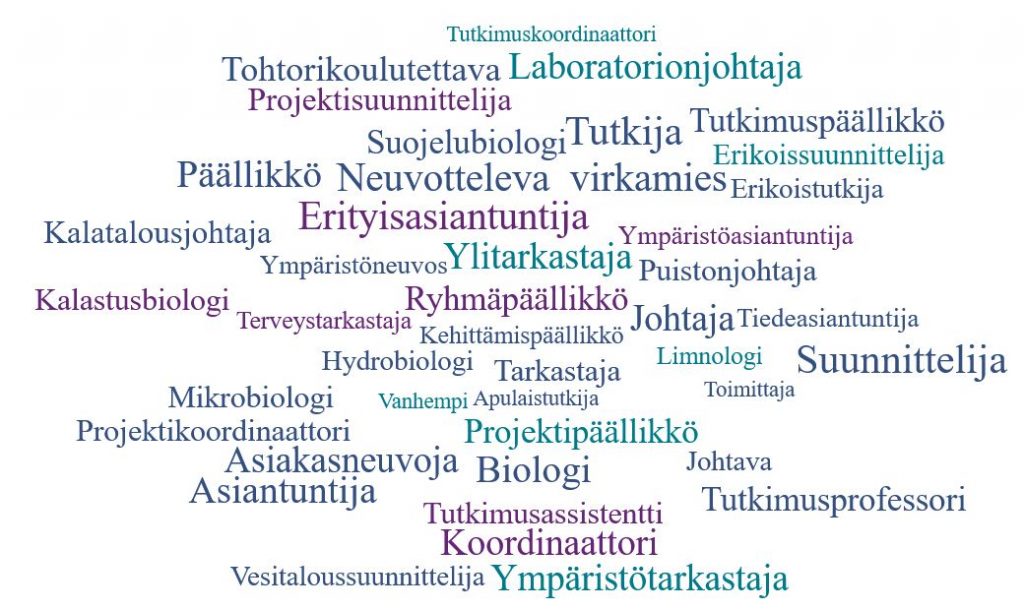Environmental sciences explore how human activities affect the environment and, on the other hand, how the environment and its status affect people and the world around us. Environmental sciences are multi-disciplinary sciences and the studies concentrate on sustainable development, environmental politics, environmental legislation, ecology, life cycle impacts and economics. Environmental competence plays a significant role on our path towards a sustainable future.
Environmental scientists graduate from the University of Helsinki, the University of Turku, the University of Jyväskylä and The University of Eastern Finland. In addition, environmental scientists graduate from the HAMK University of Applied Sciences, Forssa campus (sustainable development degree programme).
Approximately 100 environmental scientists (natural sciences) and 100 environmental scientists (environmental protection technology) graduate annually.
Sources of employment and examples of employers
-
- Finnish Environment Institute
- Centre for Economic Development, Transport and the Environment
- Regional state administrative agency
- Cities, municipalities
-
- Water protection associations
- The Finnish Association for Nature Conservation (FANC)
- WWF
- Development cooperation organizations
-
- Finnish Food Authority
- Finnish Meteorologial Institute
- Natural Resources Institute Finland
- Ministy of Agriculture and Forestry in Finland
- Metsähallitus
- Finnish Academy
- The Finnish Wildlife Agency
- Finnish institute for health and welfare
- Finnish Institute of Occupational Health
- Ministry of the Environment
-
- Eurofins Ahma
- KVVY Tutkimus
- SYNLAB
- Environmental service laboratories
- VTT
-
- Ramboll
- Afry
- Gaia Consulting
- Golder Associates
- Sitowise
-
- University of Helsinki
- University of Eastern Finland
- University of Jyväskylä
- Univeristy of Turku
- environmental education organizations
Phenomena in the field
- seasonal nature of the work
- sustainable development and responsibility, influencing within the organisation and incorporating with economical skills
- recycling and waste management development, technical solutions
- consultation and working through co-operatives increasing
- appreciation of reporting and project skills
- skills in authority cooperation and environmental legislation
Environmental scientists’ titles in Finnish job market

Employment and career opportunities
There are approximately 2,300 environmental scientists in the labour market. There are approximately 65 unemployed jobseekers with an environmental higher education background i.e. less than 3%.
There are slightly more than 500 environmental lower university degree holders on the labor market. The number of unemployed is about 50, i.e. the unemployment rate is about 9%. Many also continue their studies for a higher university degree.
The environmental, HSE and responsibility themes are currently an important part of business operations and the appreciation of the related skills is growing. New job opportunities may arise from ability to combine environmental skills, for example, with economic, administrative and legislation-related skills.
Looking for a job?
We have listed the job adds in English in the field of environmental sciences – check it out!